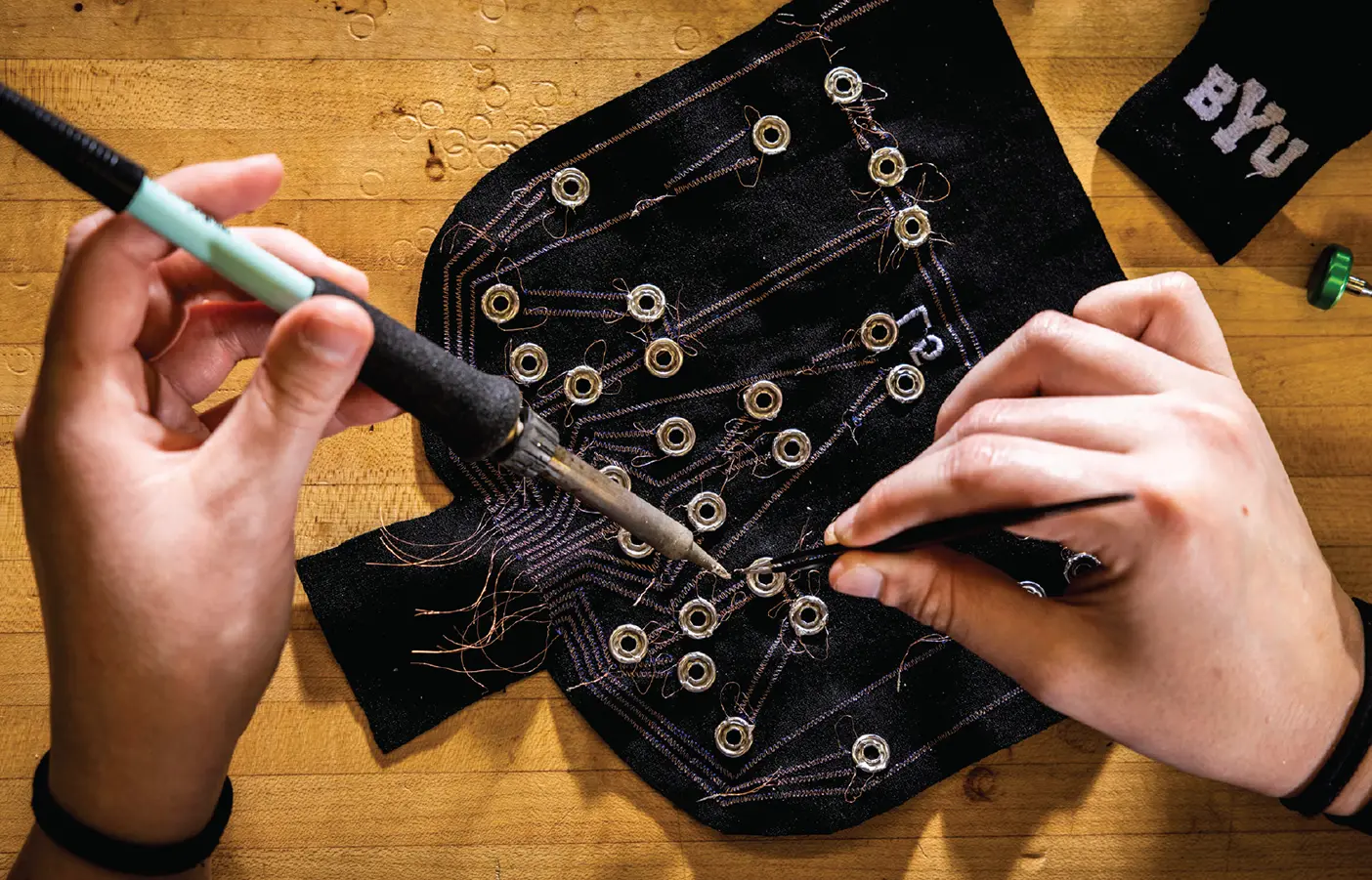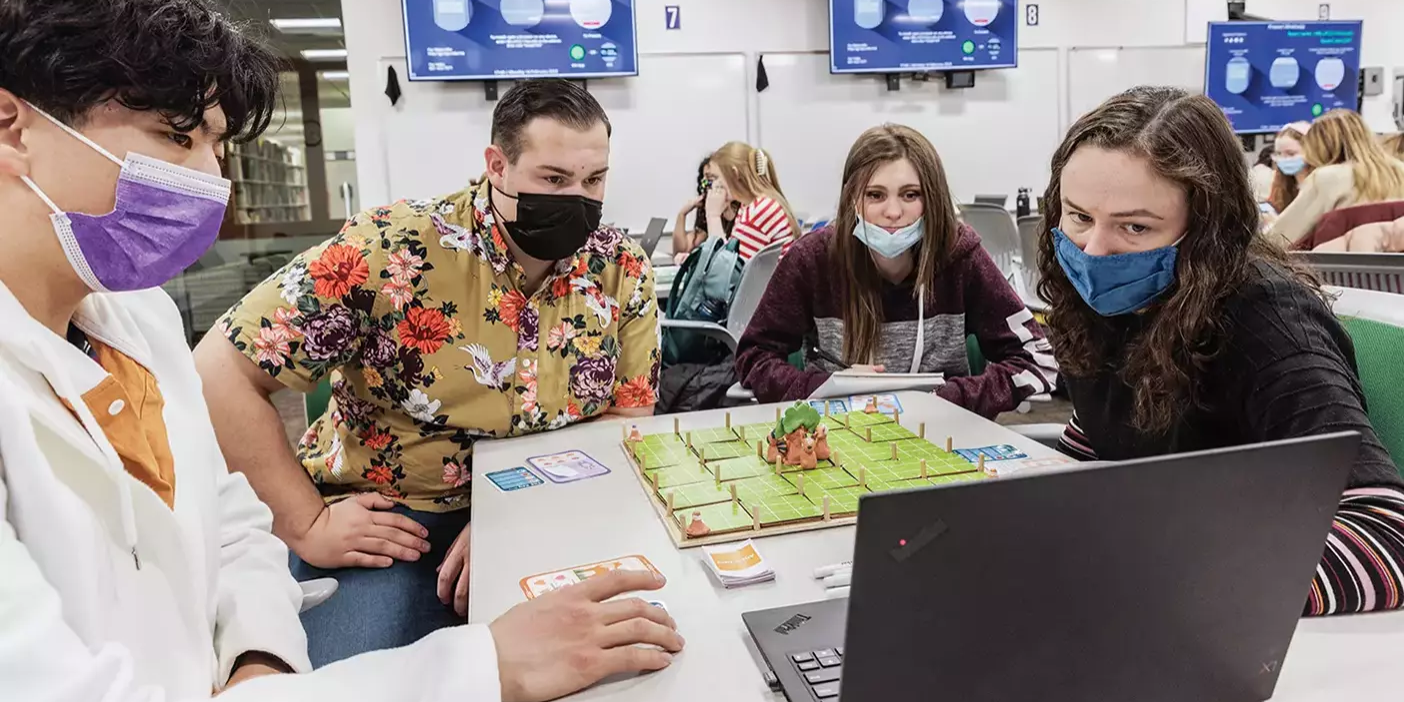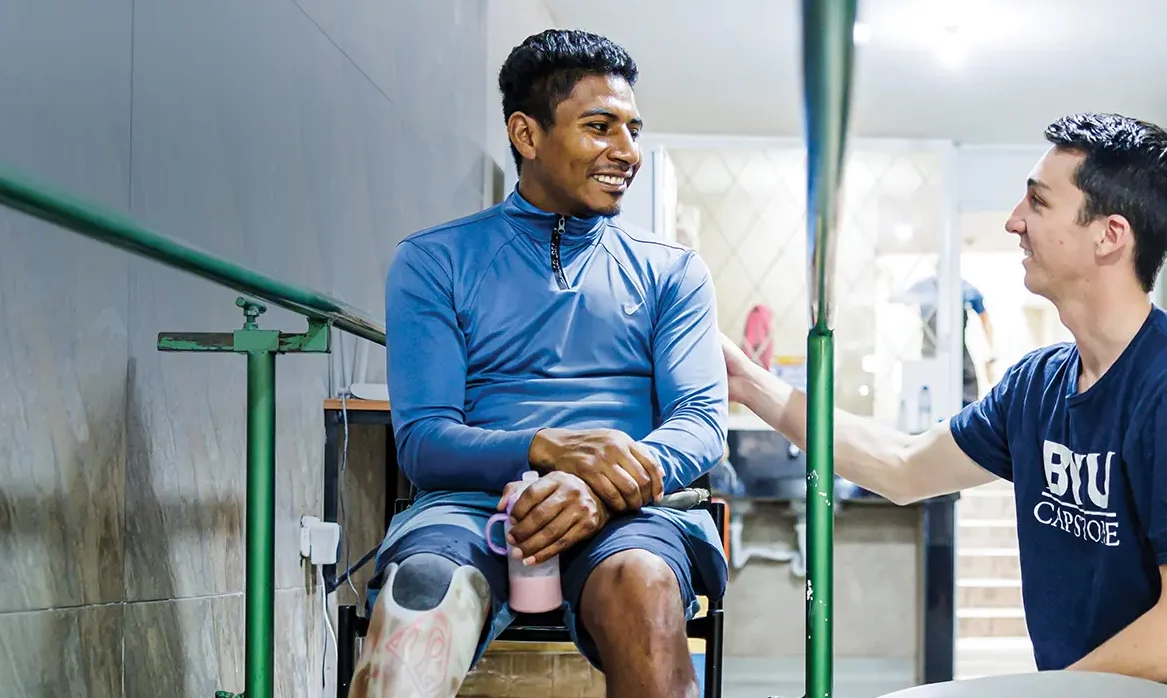
Last winter AI language models took the world by storm, writing code, concocting recipes, and acing exams. The technology’s transformative potential has been expanding ever since. Here’s how BYU faculty and students are leveraging AI tech for good.
AI and Pain Relief
Can AI technology combat the opioid epidemic? As part of a nationwide initiative funded by the National Institutes of Health (NIH), researchers in mechanical engineering and exercise science at BYU are using AI to address one of the crisis’s main causes—chronic back pain.
PhD student Spencer A. Baker (BS ’20), in collaboration with faculty, uses machine learning to analyze spinal motion data from back-pain patients collected by a wearable sensor (pictured above). The algorithm considers multidimensional variation that’s too complex for any human researcher.
With this method, Baker explains, “out of the dozens or more potential treatment types, we know which would be best for this patient’s condition.”
Speech Saver
With an interdisciplinary research grant from BYU, communication-disorders professor Dallin J. Bailey (BA ’11, MS ’13) partners with computer-science professor David Wingate (BS ’02, MS ’04) and with computer-engineering professor Derek L. Hansen (BA ’98) to create a text prediction app that helps aphasia patients formulate ideas and express themselves.
The app, which pairs speech recognition software with ChatGPT, analyzes users’ speech, proposes a range of likely completions, and offers complete, grammatically correct text versions of the speech back to users.
The tool has room for growth: “Every person with aphasia is different,” Bailey says. “That means we need to do a lot of research to explore how different features may match up with different people’s needs and aphasia profiles.”
Entrepreneurial Energy
AI offers new opportunities to student entrepreneurs as well. In January cofounders Jacob C. Wright (’24) and Parker Edwards launched the marketplace service Proxy, which uses AI to automatically connect home-buyers and clean-energy products, file tax rebates for clean energy, and more. They spun it up in BYU’s Sandbox incubator and then spent a summer in San Francisco as part of HF0, a prominent accelerator program. Now they’re delivering renewable-energy solutions to homebuyers nationwide.
Proxy was recently named an “innovation partner” by the U.S. Department of Energy. “Providing renewable-energy resources for people is one of the most important problems to be solved right now,” Edwards says. “Our mission is to make clean energy more accessible and reduce the cost of home ownership.”












